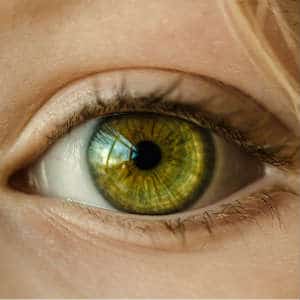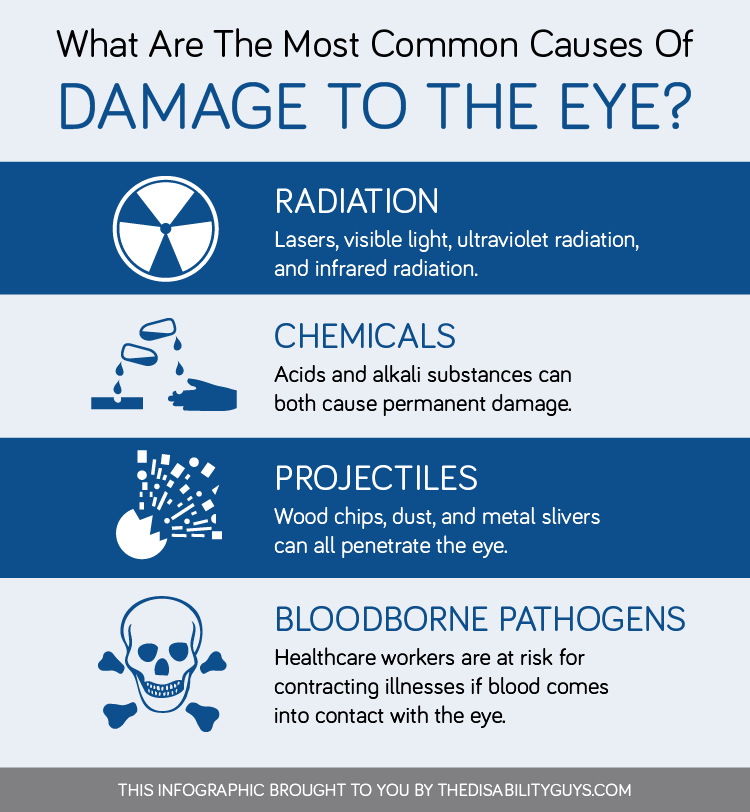The world we live in is a beautiful one, full of natural and man made wonders which captivate millions each year. The harsh reality is, however, that in order to take in these spectacular sights, visitors need the use of their eyes, something that millions take for granted each year and a sense that can be damaged or lost due to an on the job accident or exposure.
March Is Workplace Eye Wellness Month
Around 2,000 American workers will sustain eye injuries this year and while this might be a relatively small number when compared to other common injuries, eye injuries are some of the most painful and disabling. Obviously, if someone loses their vision partially or entirely, this will impact not only their ability to do their job but also the way that they live.
Occupations That Are At High Risk
As always, there are certain occupations where workers have a higher risk of sustaining an eye injury. These occupations include:
- Construction: In this industry, workers are often surrounded by flying objects like wood chips, metal, and dust. In addition to this, defective tools like nail guns can backfire and cause penetrating injuries to the eye.
- Manufacturing: Depending on what is being manufactured, employees may be exposed to chemicals or particles that can damage the globe of the eye.
Mining: Similar to construction, workers are often exposed to substances and tools which can hurt the eye, in addition to the risk of being involved in a cave-in or collapse which may result in trauma.
- Auto Repair: This might not seem like an obvious industry however often workers must be under a car, where tools and toxic substances could drop into the eye.
- Electrical Work: In addition to being hurt by the tools they use, electricians can also literally sustain burns to the eyes if they get electrocuted. In addition to this, they may also be exposed to radiation based on the type of work that is being performed.
- Welding: Radiation can be given off during welding which can damage the eyes if special gear isn’t provided to the employee.
The types of hazards that each industry faces vary and so too should the eye safety standards and protection provided to employees.
What Causes The Most On The Job Eye Injuries?
According the the Occupational Safety & Health Administration, the most common causes of on the job eye injuries include:
Radiation
Ultraviolet radiation, infrared radiation, laser lights, and visible light can all cause damage to the eye if exposure without protection occurs.
Chemicals
Anyone working with chemicals could be seriously hurt if that chemical is splashed into their eyes which is why so many workplaces are required to have an eye washing station. Caustic chemicals often found in substances such as household cleaners, fertilizers, and construction materials like cement can result in the worst damage.
Projectiles
Anything flying through the air can result in damage to the eye, even something as small as a particle of dust. If that particle is hard enough, it can rub on the delicate surface of the eye, penetrating it.
Bloodborne Pathogens
This may seem odd but in the healthcare industry there have been reported instances of HIV infection spread through a splash to the eye. Other infections diseases may also be spread via exposure to the eye.
Share this Image On Your Site
How Can I Protect My Eyes While At Work?
There are steps that every worker should take to protect their vision. The first step is to determine which hazards you may be exposed to at work – often there is more than one hazard and the protection required will differ. Proper protection may include:
Safety glasses
Safety glasses are designed to provide significant eye protection even if they look almost like everyday glasses and can even be made with a prescription. In order to be considered safety glasses the eyewear must the American National Standards Institute standards and are generally used in working conditions where projectiles are flying around.
 Goggles
Goggles
Like safety glasses, goggles need to meet certain standards but this full coverage option can also protect from chemical splashes due to the full shield which touches the skin.
Face Shields
Full face shields may be necessary in some workplaces.
Radiation Protection
Special protection can be fitted to face shields, goggles, and safety glasses to protect the eyes from radiation exposure.
What Should I Do If I Hurt My Eyes At Work?
Every workplace should have procedures in place if an employee’s eyes are injured and managers should train employees on how to handle an emergency involving their eyes. Depending on the type of injury, this may include:
- Immediately flushing the eyes with water for an extended period of time – usually at least 15 minutes.
- Putting a cold compress on the eye if a high impact blow was sustained.
- Seeking immediate medical attention.
It’s important to see a doctor as soon as possible, even if you don’t believe that your eye sustained any serious injury because left untreated, minor injuries can ultimately result in permanent damage.
Does Workers’ Comp Cover Eye Injuries?
Absolutely. If the eye injury occurs during the course of an employee’s duties, workers’ compensation should cover any medical expenses that directly relate to the injuries sustained at work. If the employee is unable to return to work because of reduced vision while they heal, workers’ comp may also pay for a small portion of lost wages.
What Can I Do If I’m Unable To Work Permanently?
If your eyesight is permanently damaged and you are unable to do the work you previously enjoyed, you may be able to obtain payments through Social Security Disability but obtaining these benefits are incredibly difficult and an average of 65% of all applicants are denied the first time they apply. In order to be eligible, applicants must:
- Have worked for a certain period of time during their career, typically at least five of the past ten years.
- Have been physically or emotionally damaged to the point where they are unable to work.
- Obtain a doctor’s report as well as other medical reports which highlight the disability and why it impacts the applicant’s ability to do work.
Even with all of the correct information, common issues may result in denial, such as:
- Mistakes made on the claim form and supporting paperwork.
- A lack of medical evidence.
If you are in the process of applying for Workers’ Comp or Social Security Disability benefits, or if you are filing an appeal, you can greatly increase your chances of getting the compensation that you need by contacting an attorney who is experienced in this type of law.
How Can The Disability Guys Help Me?
When you seek our help, our experienced legal team will:
- Ensure that all paperwork is filled out correctly and on time. We help you identify and complete all necessary paperwork.
- Review the case to determine if you are filing for all the benefits to which you are entitled.
- Help you gather the medical evidence that is needed to prove the case.
- Represent you during any hearings and prepare you for the experience.
In addition to this, we focus on making sure that you and your loved ones feel that you fully understand the legal processes that you are going through. We believe communication is key to a healthy attorney-client relationship and are always prepared to answer all of your questions.

 Mining: Similar to construction, workers are often exposed to substances and tools which can hurt the eye, in addition to the risk of being involved in a cave-in or collapse which may result in trauma.
Mining: Similar to construction, workers are often exposed to substances and tools which can hurt the eye, in addition to the risk of being involved in a cave-in or collapse which may result in trauma.
 Goggles
Goggles